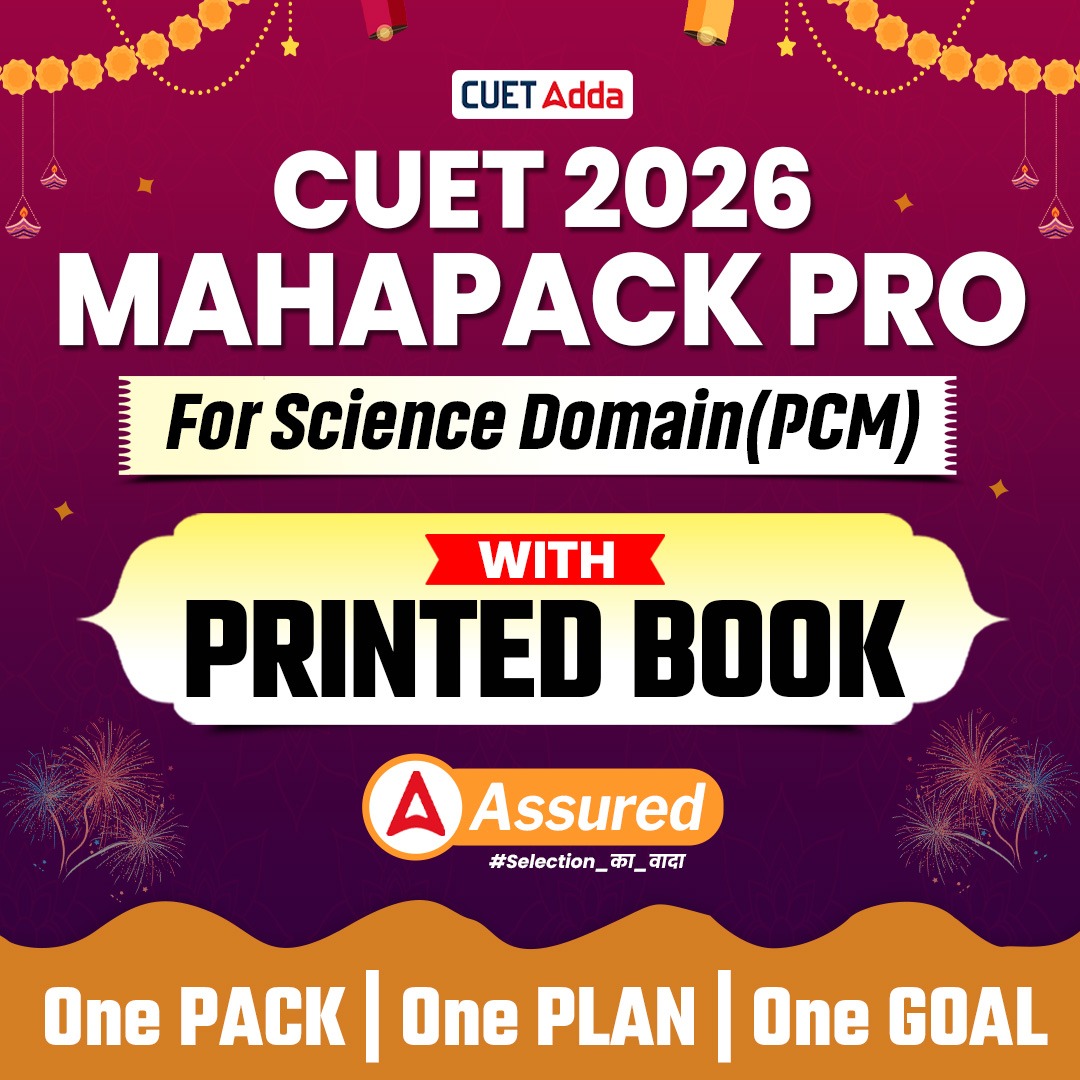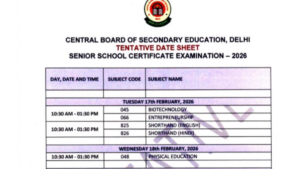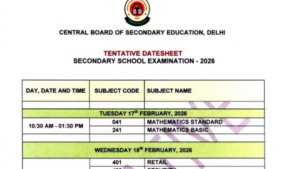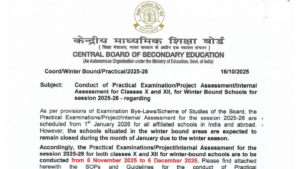NCERT Solutions for Class 12 Vistas English Chapter 4 The Enemy: About the chapter
It is the World War II era. An American POW is discovered at a Japanese doctor’s door after washing up on the shore in a dying state. Should he turn him up to the Army as a patriot or keep him as a doctor?
The Second World War is when the story takes place. An American POW is discovered by a Japanese doctor at his door. He must decide between saving the injured guy as a doctor and turning over the enemy to the army as a Japanese.
NCERT Solutions for Class 12 Vistas English Chapter 4 The Enemy: Video Explanation
Watch the video for a better understanding of the chapter
NCERT Solutions for Class 12 Vistas English Chapter 4 The Enemy: PDF
The entire PDF of NCERT Solutions for class 12 Vistas English The Enemy is made available to you and you can download the PDF for future reference
NCERT Solutions for Class 12 Vistas English Chapter 4 The Enemy: Solved Textbook Questions
Que. There are moments in life when we have to make hard choices between our roles as private individuals and as citizens with a sense of national loyalty. Discuss with reference to the story you have just read.
Ans. The protagonist, a Japanese doctor, is motivated by human principles to aid an enemy during battle. The protagonist of the tale is a doctor who treats a seriously injured enemy soldier. He notices the white man in serious condition who desperately needs the doctor’s aid because he is a doctor and because he is a human being. He doesn’t want to help him though because the man was from a rival nation. He feels betrayed by his land if he treats the white man badly. But after deciding to turn the individual over to the police, he feels unqualified to continue doing his job.
Que. Dr Sadao was compelled by his duty as a doctor to help the enemy soldier. What made Hana, his wife, sympathetic to him in the face of open defiance from the domestic staff?
Ans. Dr. Sadao and his wife Hana were aware that their choice to spare the enemy soldier would be questioned by everyone. Hana was sympathetic to him since, having known Dr. Sadao for a long time, she knew exactly how he was feeling at the time. She understood that Dr. Sadao was motivated by his duties as a doctor, but she also thought it might be interpreted as a lack of patriotism on his part. The situation was made worse by the fact that he was concealing the enemy inside his house and that their domestic staff had quit. She felt sympathy for her spouse because of his precarious condition.
Que. How would you explain the reluctance of the soldier to leave the shelter of the doctor’s home even when he knew he couldn’t stay there without risk to the doctor and himself?
Ans. According to the story, Tom, a white man, joined the army when he was just shy of seventeen years old. When the American military prisoner regained consciousness and realised that a Japanese family had saved him, he worried that their army would soon take custody of him. The treatment he received from them when he entered the doctor’s home made him feel affectionate toward them. Despite being a threat to Dr. Sadao’s family, he was aware that there was a chance that his life could be saved. He was so overwhelmed with gratitude for them that he ultimately chose to go through with the doctor’s escape plan.
Que. What explains the attitude of the General in the matter of the enemy soldier? Was it human consideration, lack of national loyalty, dereliction of duty or simply self-absorption?
Ans. The general was completely absorbed in himself. He was a patient of Dr. Sadao, and he put all of his trust in him when it came to his health. If the doctor was put to death for treachery, he couldn’t take the chance of going undefended. He promised to use his personal assassins to kill the injured soldier. Sadly, he ‘forgot’ that he had promised to assist the doctor. He had no interest in people. He had no interest in people.
Que. While hatred against a member of the enemy race is justifiable, especially during wartime, what makes a human being rise above narrow prejudices?
Ans.It is rather normal to hate your opponent, but it is more difficult to accept them and to love them. While anger against the enemy is understandable, especially in times of conflict, a human being can transcend above constricting stereotypes when they feel a sense of humanity. It is clear that the nations at war are rivals, and hatred is a component of this rivalry. Breaking the bonds and moving away from the crowd becomes crucial. When the doctor in this narrative saw the wounded adversary, he was powerless to hold back from assisting the man. It is the best illustration of a circumstance that causes a person to rise above preconceived notions.
Que. Do you think the doctor’s final solution to the problem was the best possible one in the circumstances?
Ans. As part of his duty, the doctor did his best to save the hurt soldier. But what to do next was the crucial issue. As he spoke the truth to the General, it cannot be stated that he betrayed his country. He handled him extremely finely, and the final choice he made was favourable to the white guy and the doctor’s family. Along with asking him to leave for his home, he gave him clothing and food. He also rescued himself by doing this. But when the general said that the wounded soldier was to be slain solely to save the life of the doctor and not for the benefit of the country, he made the decision to aid the doctor in escaping. In such a condition, the doctor’s final solution to the problem was the best possible one.
Que. Does the story remind you of ‘Birth’ by A. J. Cronin that you read in Snapshots last year? What are the similarities?
Ans. Yes, the narrative makes me think of A.J. Cronin’s “BIRTH.” The parallels between BIRTH and THE ENEMY are obvious. In spite of external conditions, both tales demonstrate the doctors’ kind disposition toward their patients. When Morgan calls the doctor for help with his child, “BIRTH” characterises the doctor as being quite pragmatic. Even though the white man in “THE ENEMY” is his enemy, the doctor aids him due to his injury. The character of the doctor in “BIRTH” demonstrates patience when, despite the fact that the infant is dead after birth, the doctor keeps trying to save him or her. And in “THE ENEMY,” the doctor cared for white seamen for several days before letting the white guy safely board the boat. In both stories the doctors treated their patients with devotion towards their job, whatever the difficulty. For Dr. Sadao, the risk was to give a stay to the white man and for that, they could get arrested while Dr. Andrew risked giving a new life to the ‘stillborn’ baby. Consequently, both the stories deal with humanity’s love, affection, selflessness, and a strong sense of duty.
NCERT Solutions for Class 12 Vistas English Chapter 4 The Enemy: FAQs
Que. Are the solutions for other subjects also available?
Ans. Yes, NCERT solutions for all the subjects are available on Adda247.
Que. What are the benefits of using the NCERT Solutions for Class 12 Vistas English from Adda247?
Ans. The benefits of using the NCERT Solutions for Class 12 Vistas English from Adda247 are:
- Along with NCERT Solution, the student is getting video explanations also.
- PDF is also provided that can be downloaded and saved for future reference.
Que. How do the NCERT Solutions for Class 12 Vistas help you to score efficiently?
Ans. The NCERT Solutions for Class 12 English are prepared in a CBSE-specific format to score good marks in the board exam. The solutions created are 100% accurate as per the exam pattern and marks weightage designed by the prescribed board. By using the NCERT Solutions from ADDA 247, students will be able to understand the concepts effectively and score well in the board exams. Students can download the solutions and answer the textbook questions without any difficulty. It also helps students to get their doubts cleared immediately without carrying it for a longer period.











 CBSE Class 12 Date Sheet 2026 Out, CBSE ...
CBSE Class 12 Date Sheet 2026 Out, CBSE ...
 CBSE Class 10 Date Sheet 2026 Out, Class...
CBSE Class 10 Date Sheet 2026 Out, Class...
 CBSE Practical Exam Date Sheet 2025-2026...
CBSE Practical Exam Date Sheet 2025-2026...

